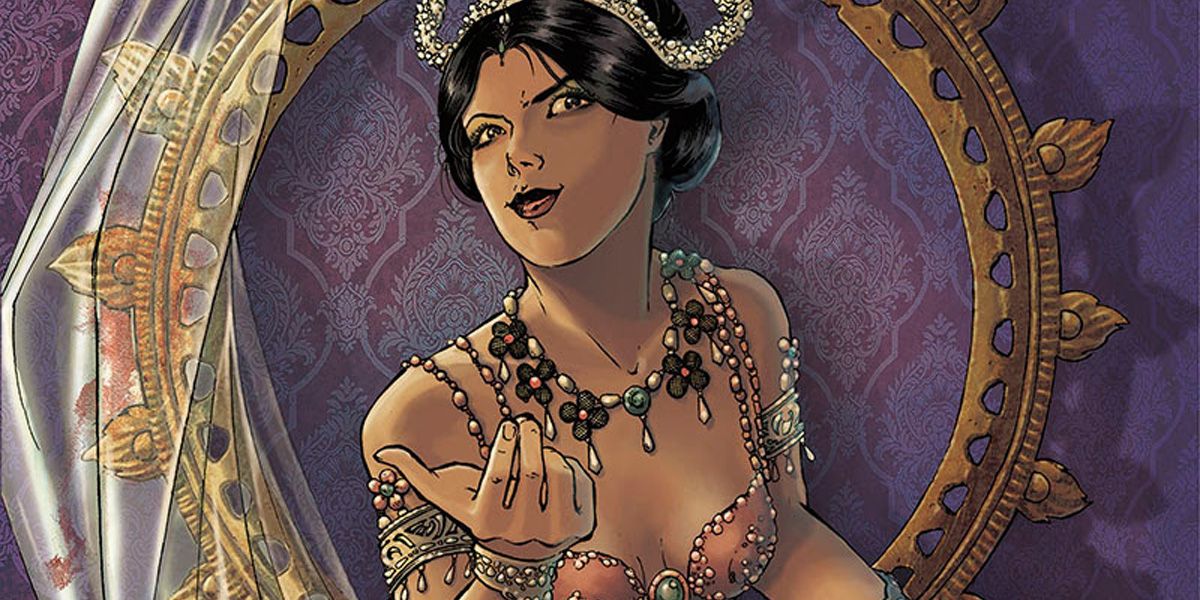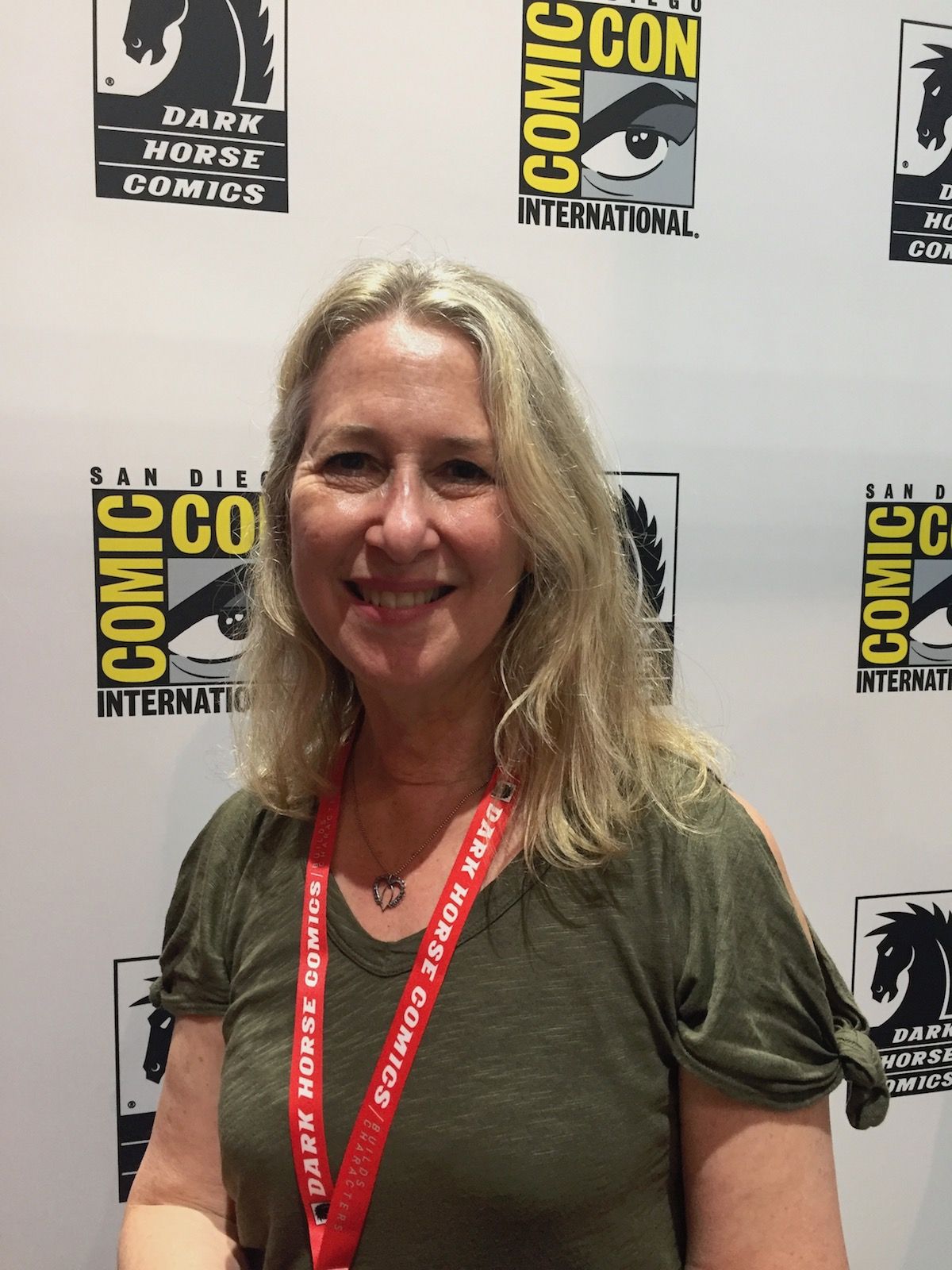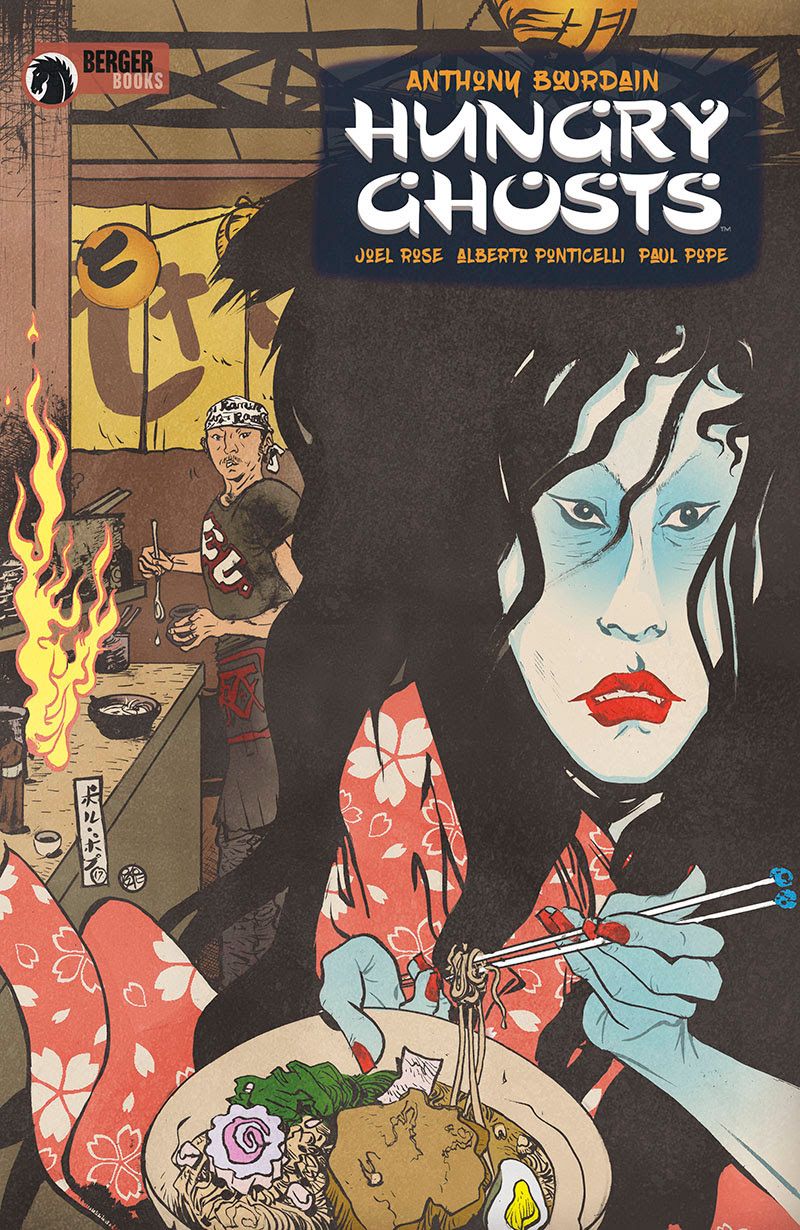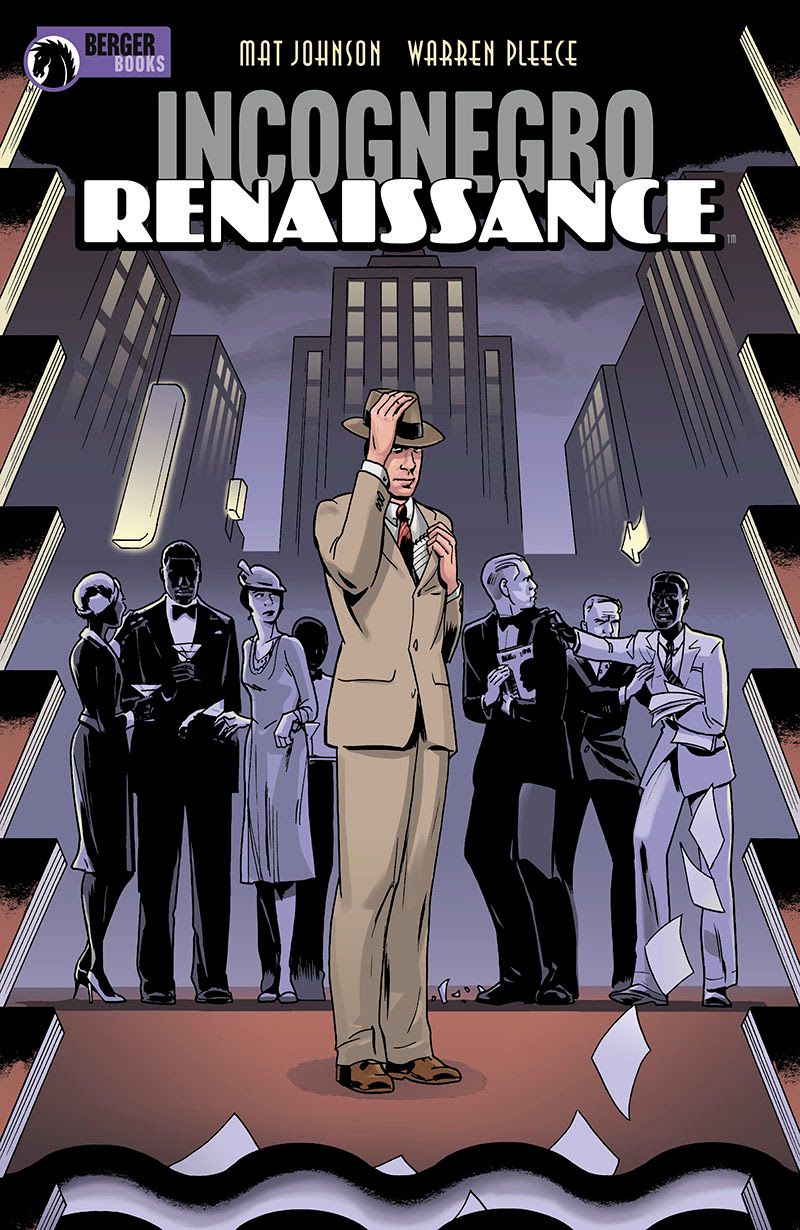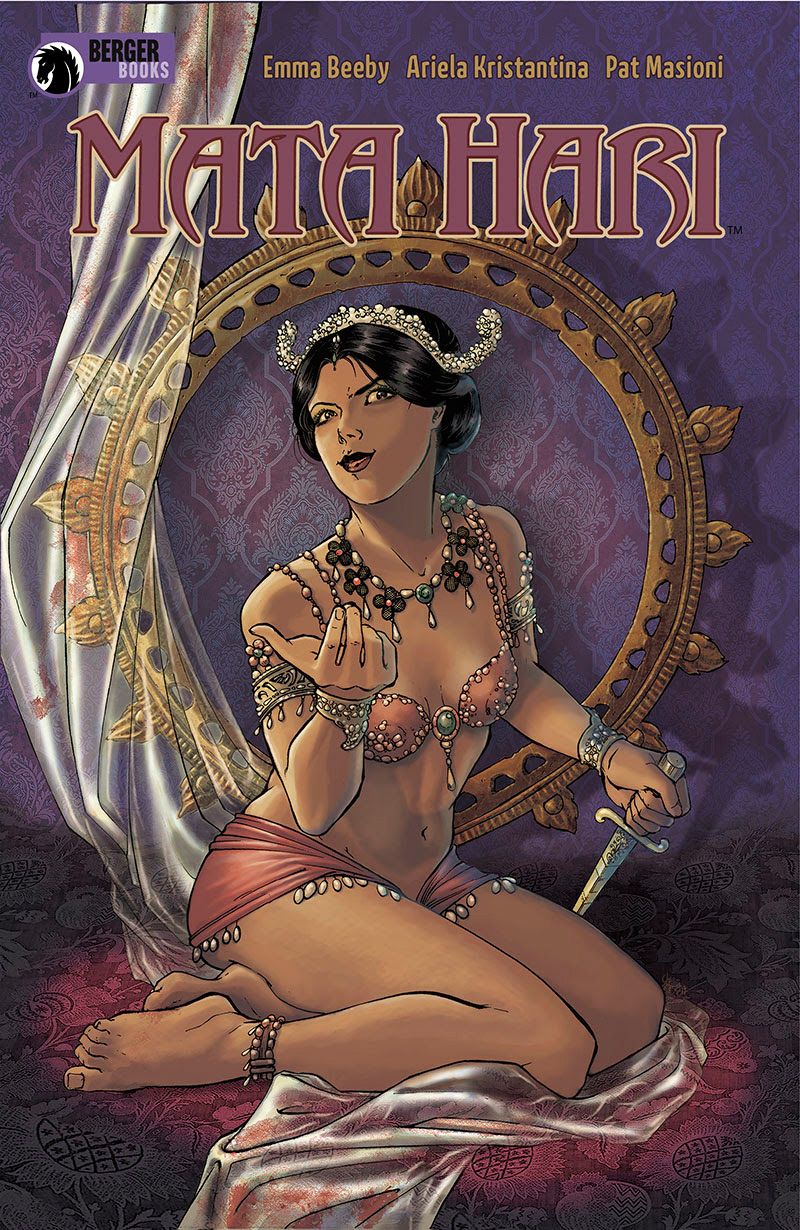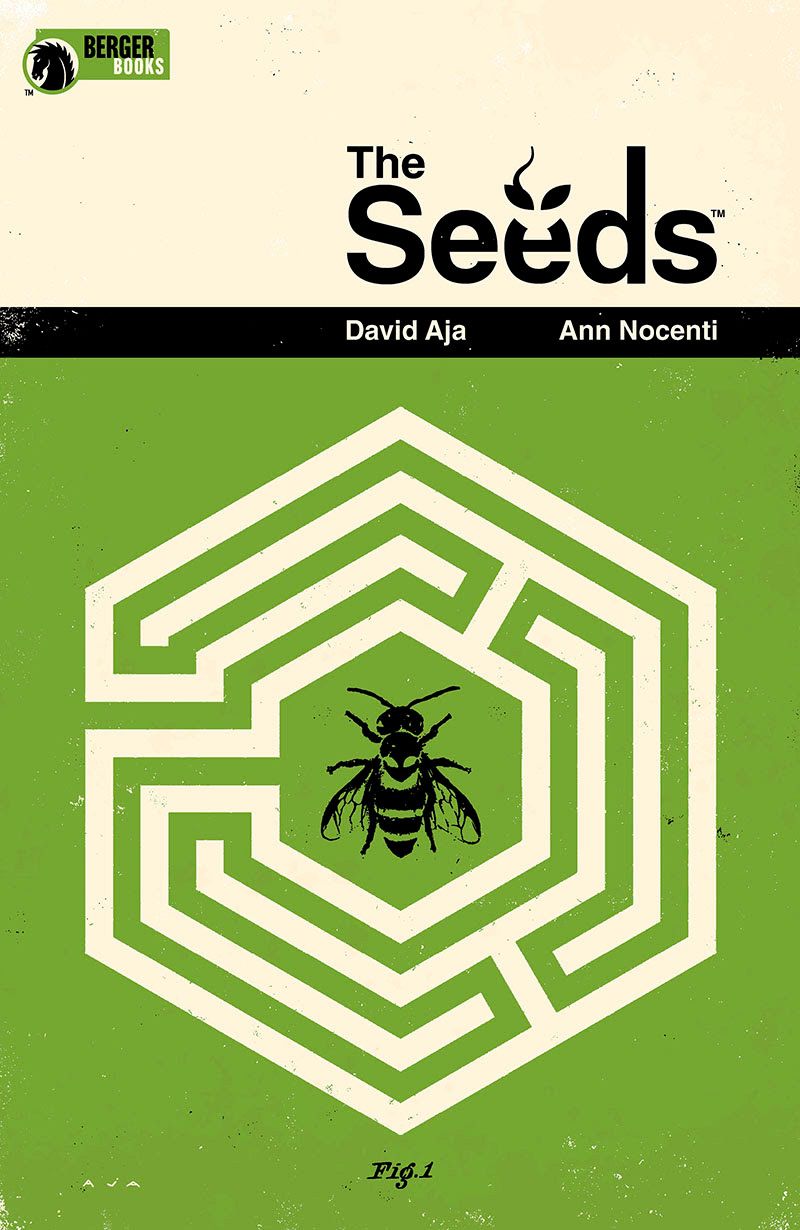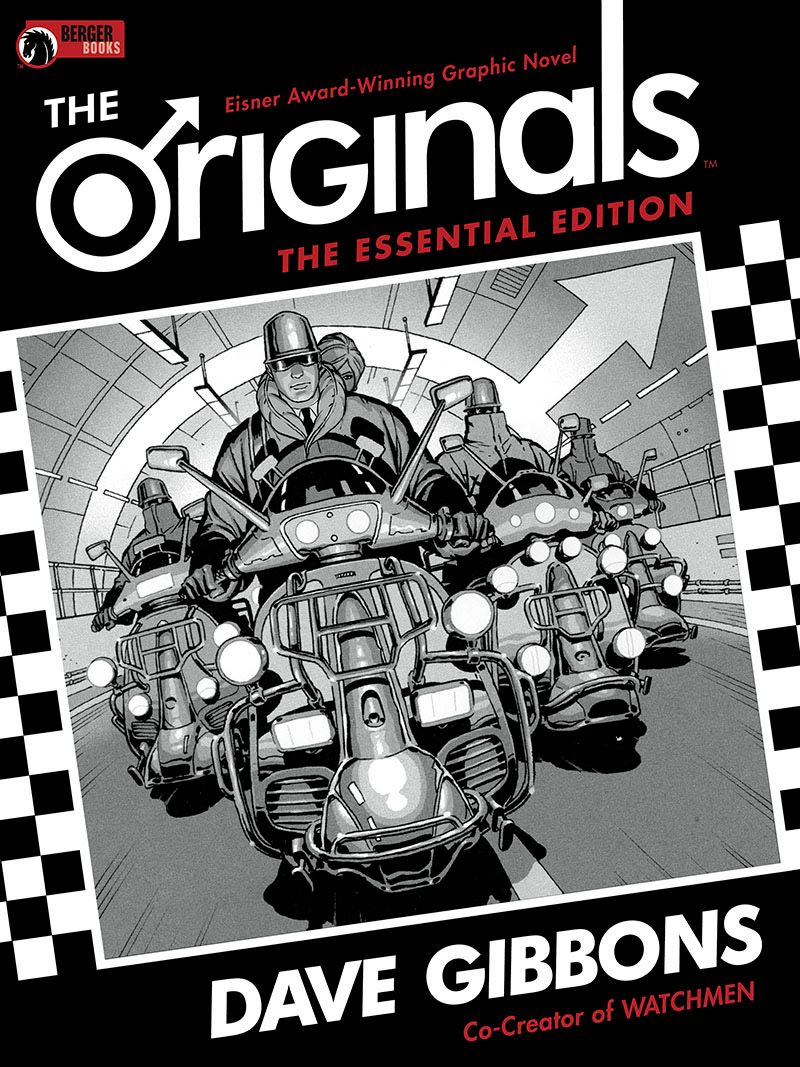Karen Berger, the legendary editor who pioneered DC Comics' Vertigo imprint, will launch a new line of creator-owned comics, this time at Dark Horse Comics, early next year. The publisher announced the formation of the Berger Books imprint at the February ComicsPRO meeting, and Berger is set to acquire and edit all the comics and graphic novels in the line.
The first set of titles was announced in July, just before Comic-Con International in San Diego: Hungry Ghosts, a four-issue series written by Anthony Bourdain and Joel Rose (the celebrity chef and co-writer who together penned Vertigo's Get Jiro) and illustrated by a number of artists, including Paul Pope and Vanessa Del Rey; Incognegro: Renaissance, a five-issue prequel to the 2007 graphic novel Incognegro, both by Mat Johnson and Warren Pleece; Mata Hari, a five-issue series by Emma Beeby, Ariela Kristiantina, and Pat Masioni; and The Seeds, by Ann Nocenti and David Aja, a four-issue series. Berger Books will also publish new editions of the original 2008 Incognegro and Dave Gibbons's 2004 story The Originals as standalone graphic novels.
CBR spoke to Berger on the convention floor about the details of the launch titles, and the aim of the imprint itself.
CBR: This new line sounds intriguing, because many of us who are nontraditional comics readers came in one way or another through Vertigo.
Karen Berger: That is what to me means the most, because I'm not a traditional comics reader, either. When I hear women and other nontraditional comics readers say "I got into comics through Vertigo because it was something different from everything else that was going on," I feel I actually did something that meant something!
How did you choose this first set of titles?
What's great about the first four books in the line is that each one is unique, and each one is on a topic that I find of great interest. As someone who was not a comics reader growing up, I've always operated by my gut instinct. It has to feel right, and obviously it has to have a great concept and great characters and great theme behind it, but ultimately I always wanted to edit something that I wanted to read, and that's honestly what Vertigo was -- it was books Karen wanted to read.
The stories that interest me are stories that have some sense of topicality and relevance to the times that we live in -- social issues, political issues, and cultural issues. That story could take place 100 years ago, it could take place 100 years in the future, it could be a crime fiction story, it could be a science-fiction story, it could be a horror story, it could be a real-life story. There's no one set guidepost to what Berger Books is, but they are stories that I feel are fresh and different and original and moving and feel like something I haven't read before -- and stuff that I think hey, if I like it I think other people will like it too.
So what's Hungry Ghosts all about?
The inspiration for Hungry Ghosts is a Japanese game called "100 Candles," which was played by the samurai in the Edo Period, from the 1600s to the 1800s, where they would sit around a campfire and tell scary stories to sort of one-up each other.
What Tony did in this comic is instead of having a group of samurai, he made it a group of international chefs. Like the pitch says "As everyone knows, macho lives in the kitchen," and chefs are very competitive. In the first issue they are called together by a Russian oligarch who has won a charity contest and gets all these chefs to make this fabulous meal at his home in Montauk, Long Island. At the end, he pulls them out of the kitchen to say "I want to thank you for this amazing meal, but now I'd like you to do something for me." And he brings out his Japanese masseuse, who explains the game of 100 Candles. Then he says "Now I want each of you chefs to tell me a story, and may the best chef win!" Each issue will have two stories told by different chefs.
[The authors] really wanted the artists to be inspired by the art from the Edo period, like the first cover that Paul Pope did. We have Vanessa Del Rey doing a story, Paul's doing a story, Alberto Ponticelli, Leo Manco, Mateus Santolouco, so we have some really wonderful artists. And the theme of food is part of all the stories.
What's exciting to me is the first comic I ever edited was House of Mystery # 292, in 1980. That's a horror anthology book, and Hungry Ghosts is a horror anthology, so it's a really nice symmetry.
And then you’re bringing back Incognegro…
Incognegro is a graphic novel I did 10 years ago, by Mat Johnson and Warren Pleece. It's a great book about a black reporter who passes for white to go undercover. This coming February we're putting out [a new edition] for Black History Month, and we're doing a prequel miniseries that takes place 20 years before, during the Harlem Renaissance. We see our reporter, Zane Pinchback, at the beginning of his career, when he comes to New York to try to make it as a reporter. He winds up going to a literary party in Harlem: A white author was launching a book about black history and this is the launch party at his house. Then there's a murder over the book, and [the author] is accused of not really having written the book, that a black guy wrote it and he stole from him. It's a murder mystery, and there's a love affair that our reporter has with a woman who is also passing for white.
Is Berger Books republishing the original Incognegro as well?
Yes. It was a black-and-white book at Vertigo, and now Warren Pleece is adding gray tones. It has a softer look to it. We're also doing it a little bit smaller: We're doing 6" x 9", which is the same size as the March books. It's a similar market we would like to hit in terms of readership, but it's also the same size as Persepolis and Fun Home, where it's more of that classic graphic novel trade size.
Are you doing the floppies [single issues] in a smaller format too?
No, just the graphic novel. We are doing classic floppy size, but the graphic novels we are doing hardcover in that 6" x 9" size because it feels more intimate, in a way, and for people who don't normally read comics it's more transferable.
The next series is Mata Hari. What will that be like?
It's written by a woman, drawn by a woman, and it tells the story from Mata Hari's perspective. She was sort of an out-there person. She was an exotic dancer; she was quite seductive, very sexual. She rode through the streets of Paris naked as Lady Godiva. She had lovers. She was married twice, before she decided to go into this sort of dancer, exhibitionist lifestyle. One of her children died as an infant, and because she was involved in some kind of scandal, the husband got custody of her daughter, so she was longing for this daughter her entire life. But she also makes up stories about herself, too -- she says "I'm a Javanese princess"—so there's sort of an unreliable narrator aspect to it. This October is the 100th anniversary of her death. All the stories that have been done about her have been very sexualized, and this is really trying to tell it from another perspective. so that's to me a very exciting kind of book.
Is it fiction or nonfiction?
It's fiction, but heavily researched.
The fourth new series is The Seeds, by Ann Nocenti and David Aja. Ann is an amazing writer and quite an extraordinary person. She and David came to me and said "We'd love to work with you," and told me about this story, where aliens have come to Earth to collect seeds, because Earth is on its way out because of climate change, and they want to get the seeds of our flora and fauna before it's gone. One of the aliens falls in love with an Earth woman, and this is an alien whose gender changes, so there's a whole interesting play on gender issues and alienation, from the literal alien coming here, trying to figure out this world, to the alienation of the woman he falls in love with, who's 19 and feeling alienated from her parents and the world. At the heart of the story is an idealistic journalist whose boss is always yelling at her, "Just get me a really big scoop." She sees the gender-shifting alien and this young woman together and she thinks "Wow, this is my scoop," but she knows if she reports this, it will blow their love story wide open. And she's also trying to find out more about what this guy is trying to do.
It's a story that appealed to me on so many levels because not only does it deal with environmental issues but there's a real anti-tech component to it, and it has a real gender diversity aspect. Ann weaves these threads together beautifully, and David Aja is one of the most popular artists in comics. He did Hawkeye with Matt Fraction at Marvel for several years. The way he synthesizes design into his storytelling is quite unusual and unique and beautiful, and there's really nobody like him.
I find his work very easy to read.
Very accessible, he's a great storyteller.
And The Originals graphic novel, which David Gibbons won the Eisner Award for at Vertigo. It's a coming of age story, very loosely based on Dave's life. It's all about being young and being out there and wearing the sharpest clothes and going to the best dance party and doing the drugs that you would do at the time. He falls in love with someone, but then his best friend dies in a gang war and suddenly life isn't so simple any more. It's beautifully told, and we are adding a 32-page signature that is full of Dave's annotations and story webs and behind-the-scenes stuff, and cover roughs and character sketches and all this great extra material because Dave saves everything.
So that's the first wave, all the books coming out early next year, and then I'll be doing another wave at the end of 2018 -- but I'm not ready to talk about those yet.
Berger Books is scheduled to launch with Hungry Ghosts #1 on Jan. 31, 2018; followed by Incognegro: Renaissance on Feb. 7, Mata Hari on Feb. 21 and The Seed #1 on March 28.

